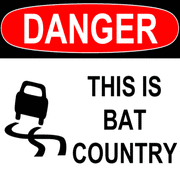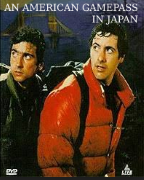|
Phi230 posted:did I ever claim you or others to be idiots? No my express implication is that one guy Jewmanji is a dumbass So, yes, and by your own admission.
|
|
|
|

|
| # ? May 23, 2024 21:38 |
|
jivjov posted:
No, that first one is StarIWars RBA Starblade fucked around with this message at 23:32 on Dec 2, 2016 |
|
|
|
Do people really think there's a difference between "art house" and regular cinema? I can't believe people believe in the high art/low art dichotomy in tyool 2016 and are using it against the prequels no less Tezzor you really are something
|
|
|
|
Waffles Inc. posted:Do people really think there's a difference between "art house" and regular cinema? Don't most people?
|
|
|
|
RBA Starblade posted:Don't most people? Its a spectrum, rather than a binary, in my opinion. Films aren't either "artsy" or "fluff entertainment", but some films definitely focus more on one or the other.
|
|
|
|
jivjov posted:Its a spectrum, rather than a binary, in my opinion. Films aren't either "artsy" or "fluff entertainment", but some films definitely focus more on one or the other.
|
|
|
|
Phi230 posted:star wars is absolutely fantasy and this is a widely held and acknowledged idea Does fantasy have any meaning, then? Because I'm having trouble seeing how Star Wars is fantasy and Foundation and 2001: A Space Odyssey are sci-fi. Maybe you could explain the meaning, a little, or else just repeat yourself like a broken record of ducks quacking.
|
|
|
|
jivjov posted:Its a spectrum, rather than a binary, in my opinion. Films aren't either "artsy" or "fluff entertainment", but some films definitely focus more on one or the other. I wasn't saying I agree, just that I thought most people thought of them very differently.
|
|
|
|
RBA Starblade posted:Don't most people? No? Movies are movies
|
|
|
|
Brainiac Five posted:Does fantasy have any meaning, then? Because I'm having trouble seeing how Star Wars is fantasy and Foundation and 2001: A Space Odyssey are sci-fi. Maybe you could explain the meaning, a little, or else just repeat yourself like a broken record of ducks quacking. https://simondillonbooks.wordpress.com/2014/03/11/why-star-wars-is-not-science-fiction-and-related-matters/ http://fortune.com/2015/12/18/george-takei-star-wars-big-difference-star-trek/
|
|
|
|
Phi230 posted:https://simondillonbooks.wordpress.com/2014/03/11/why-star-wars-is-not-science-fiction-and-related-matters/ I take the opinions of blogs, especially blogs from Fortune magazine, extremely seriously, so it's a good thing that, instead of taking five minutes to write a definition, you posted these links instead. Anyways, Takei doesn't offer a definition and the definition in the other blog says that Foundation and 2001 are fantasy. So, the question is, name something that is irrevocably sci-fi by the only definition you have provided, namely, "Star Wars is fantasy because it's not about a world that is identical to our own except for a single technological change."
|
|
|
|
The idea that Star Wars has elements of both science fiction and traditional fantasy is definitely not new, but its not some unquestioned fact that Star Wars is fantasy. The whole point of that discussion is that the genres are often blurred and there's a lot of movies that straddle the line.
|
|
|
|
I don't really want to talk about a definition that was plainly googled, but really, there's a whole lot wrong with the one offered. It's, amazingly, actually kind of racist. Well, not amazingly given the problems sci-fi and fantasy, like all genres, have had with racism and so on. But you know what I mean.
|
|
|
|
Clean your disgusting clacky keyboard.
|
|
|
|
some random person who wrote a blog posted:Consider Gravity as another recent example. It is a disaster thriller, not science fiction. Ok. some random person who wrote a blog posted:But Star Wars is not concerned with where technology may take us. How can it be? It’s set “a long time ago in a galaxy far, far away…” and then he says quote:Most science fiction also grapples with the question of what it means to be human in a world of rapidly advancing technology. This question is deep at the heart of science fiction movie classics 2001: A Space Odyssey and Blade Runner, as well as the short stories they are based on (Arthur C Clarke’s The Sentinel and Phillip K Dick’s Do Androids Dream of Electric Sheep respectively). I think the ongoing debate about droid personhood in this thread attests to the fact that this is manifestly untrue. This person clearly doesn't understand what Star Wars is about. and then he says quote:The possibility of contact with an alien race is another mainstay of science fiction, whether we are invaded by malevolent aliens intent on conquest (War of the Worlds), or if we meet aliens with more benevolent purposes in mind (Close Encounters of the Third Kind). But the world of Star Wars is populated by so many bizarre alien creatures that when one walks past no-one bats an eyelid. Their existence is a given. and then he says quote:In the above examples, artificial intelligence evolves to the point where it has consciousness and arguably even a soul. But in Star Wars artificial intelligence is strictly there to serve organic life. The author of this blog is arguing with himself and he doesn't even realize it. It's clear at this point that the author is just cherry-picking a few example of classic science fiction and saying "the definition of science fiction is 2001 and Blade Runner. The end". It's intellectually bankrupt. This blog seems to presume that something cannot straddle two genres at once. Which is stupid enough that I'm not going to elaborate on why. quote:but generally God has no place in science fiction You wrote this piece of poo poo article, didn't you? quote:To conclude, the concerns of science fiction and fantasy are clearly different. For those who still think Star Wars is science fiction rather than fantasy, consider the scene where Obi Wan sacrifices his life so Luke and the others can escape from the Death Star. The events are identical to Frodo and the Fellowship escaping from the Mines of Moria in The Lord of the Rings. The only difference is that the Star Wars scene takes place on a space station. What grade did you end up getting on this homework assignment? Jewmanji fucked around with this message at 00:31 on Dec 3, 2016 |
|
|
|
So I'm curious, would describing the Force as an "energy field" be too scientific and not mystical enough? And if not, what's the line that falls between that and the quoted description of midichlorians?
|
|
|
|
2001 is a book and movie entirely about the mystical nature of space and space travel, where gods are central to the story. But because it uses a vaguely naturalistic approach to space travel and has the AI go insane, it's "sci-fi".
|
|
|
|
The idea that because a movie starts with "a long time ago, in a galaxy far, far away", it can't possibly have a message relevant to our society is unbelievably moronic.
|
|
|
|
Brainiac Five posted:"Star Wars is fantasy because it's not about a world that is identical to our own except for a single technological change." If this is the definition your going with for science fiction, then not only is Star Wars not science fiction, but neither are most the winners of the Hugo Award. Brainiac Five posted:2001 is a book and movie entirely about the mystical nature of space and space travel, where gods are central to the story. But because it uses a vaguely naturalistic approach to space travel and has the AI go insane, it's "sci-fi". Likewise, Asimov's Foundation stories prominently feature prophecy and telepathy. Schwarzwald fucked around with this message at 00:36 on Dec 3, 2016 |
|
|
|
Schwarzwald posted:If this is the definition your going with for science fiction, then not only is Star Wars not science fiction, but neither are most the winners of the Hugo Award. I actually can't think of any sci-fi novels offhand that strictly comply to that. Not even many short stories- the first one I can think of that comes close is Avram Davidson's "Or All The Sea With Oysters", which isn't even about a technological change, but about the life-cycle of bicycles.
|
|
|
|
Brainiac Five posted:I actually can't think of any sci-fi novels offhand that strictly comply to that. Not even many short stories- the first one I can think of that comes close is Avram Davidson's "Or All The Sea With Oysters", which isn't even about a technological change, but about the life-cycle of bicycles. Maybe its supposed to mean one technological change that completely changes the world and leads to others. For example, King's short story The Jaunt, where teleportation is discovered and it leads to the colonization of Mars, but the teleportation is the main focus of the story. Its stupid regardless, and now that I'm typing this I'm remembering that I think one of my very first posts in CineD was a rant about how the idea of genre is bullshit.
|
|
|
|
Also, I didn't get two paragraphs into that first link before finding this bit of nonsense:quote:I once explained the difference this way. In Star Trek, the Enterprise goes to warp speed because of some confusing gobbledegook about dilithium crystals, quantum tunnels, inertial dampeners and the warp drive. In Star Wars, the Millennium Falcon goes to light speed because it can. Lord Hydronium fucked around with this message at 00:40 on Dec 3, 2016 |
|
|
|
Brainiac Five posted:I actually can't think of any sci-fi novels offhand that strictly comply to that. Not even many short stories- the first one I can think of that comes close is Avram Davidson's "Or All The Sea With Oysters", which isn't even about a technological change, but about the life-cycle of bicycles. The story that most immediately comes to mind that fits that criteria is Vonnegut's Cat's Cradle, which I wouldn't typically consider science fiction.
|
|
|
|
In addition to seeing IMAX 3D Rogue One on the 15th, the first Alamo location in Arizona opened today. I immediately went there after work and got an opening night Rogue One ticket and that Mondo pint glass. It's a rad place with many alcoholic beverages.  Gonna be busy as gently caress that evening. IMAX at 7:00 and Alamo at 10:20. Worth it. 
|
|
|
|
What's principally stupid about his thesis is that according to him, Jules Verne, Arthur C Clarke and PKD get to determine what the "genre" of science fiction is. No one can modify it. So Karlheinz Stockhausen gets to say "this is electronic music" but Richard D James plays weirdly so it's not "electronic music". Like, the author of the blog would literally agree with Stockhausen when he writes of Aphex Twin, quote:I heard the piece Aphex Twin of Richard James carefully: I think it would be very helpful if he listens to my work Song Of The Youth, which is electronic music, and a young boy’s voice singing with himself. Because he would then immediately stop with all these post-African repetitions, and he would look for changing tempi and changing rhythms, and he would not allow to repeat any rhythm if it were varied to some extent and if it did not have a direction in its sequence of variations. It's the antithesis of art to suggest that you cannot evolve the form.
|
|
|
|
Vintersorg posted:Clean your disgusting clacky keyboard. It's a cheap keyboard; the letters are literally wearing off the keys
|
|
|
|
The biggest difference between the first six Star Wars films is that posters in this thread were more likely to have seen the originals than the prequels before they were twelve years old. They are extremely similar in narrative structure, direction, photography, writing, effects, and music, and there is a strong and sophisticated sense of aesthetic continuity between them. They're so similar that The Force Awakens, a movie which intentionally mimicked the preceding Star Wars movie, stands out the most. Rogue One appears to be the first "official" Star Wars film that will be intentionally different rather than intentionally similar. I'm looking forward to it. Maxwell Lord posted:Granted I'm expecting Rogue One to focus more on war movie tropes than serial ones. Which is also fair since the original Star Wars takes so much from The Dam Busters and so on. I would expect some heisting, too.
|
|
|
|
Also, the prequels delve a lot deeper into Jedi mysticism than the Original Trilogy. It's a story about how the Jedi failed their messiah: it has to be by necessity.
|
|
|
|
Ray Bradbury has said that the only science fiction story he wrote was Fahrenheit. The rest he considered fantasy. Genre is in the eye of the beer holder.
|
|
|
|
Bongo Bill posted:The biggest difference between the first six Star Wars films is that posters in this thread were more likely to have seen the originals than the prequels before they were twelve years old. They are extremely similar in narrative structure, direction, photography, writing, effects, and music, and there is a strong and sophisticated sense of aesthetic continuity between them. They're so similar that The Force Awakens, a movie which intentionally mimicked the preceding Star Wars movie, stands out the most. Anecdotal, but I know quite a few people who saw the prequels first. They all hate the prequels, and several bailed on the series before the end of that trilogy. The complaints are the usual ones. Actually, in the real world I don't think I've ever met anyone who really liked the prequels. I've met people who are ambivalent and a few who enjoy space fights but think the rest is bad, but I've never heard any kind of ringing endorsement outside of the thread. ShineDog fucked around with this message at 03:05 on Dec 3, 2016 |
|
|
|
The most common distinction between the genres of science fiction and fantasy is made by aligning all fiction along a spectrum. At the near end of this spectrum is literary fiction: things that could be true, but aren't. At the opposite extreme is fantasy: a story which draws no distinction between the real world's understanding of possibility and impossibility. Science fiction falls at a moderate point, where a small number of impossibilities are introduced in a disciplined way, and the consequences of these differences are significant to the plot. Counterfactual possibility is not the most useful way of looking at it, but it can be interesting. A genre is not something that has a strict definition; rather, it's a name and a loose description given to a cluster of themes and motifs that are frequently used together. Science fiction is classically constructed like mystery fiction, in which the protagonist and reader deduce not the identity of a fictional criminal, but the possibilities of a fictional universe. The genre is aptly named in those cases, because science is the process of using evidence and logic to try to understand the nature of reality. Traditionally, the world deviates from reality in a small number of carefully chosen ways. It is this latter tradition that gives science fiction continuity between its subgenres, many of which are unconcerned with empiricism as a theme. The science fiction umbrella also includes stories which use plausible technological extrapolations in order to create distance between reality and the story's subject matter, which would be for whatever reason (controversy, insensitivity, censorship) to write about less indirectly. The most distinctive quality of fantasy, on the other hand, is that it literalizes metaphors to an extreme degree, typically constructing an entire counterfactual world that either works like, or contains things that work like, the idea being discussed. This is not a sharp definition, as all fiction, as well as many stories not considered fictitious, is to some extent a literalization of metaphor; but fantasy stands apart by doing it on a grand scale. An incoherent idea results in an incoherent setting, which is why bad fantasy is so much easier to identify than many other forms of bad literature. The blurry zone between fantasy and science fiction is found where, for instance, the emotional conditions of a story are amplified by means of a small number of plausible technological extrapolations. Fantasy that includes technology is still fantasy, of course.
|
|
|
|
https://www.youtube.com/watch?v=LjHORRHXtyI
|
|
|
|
Bongo Bill posted:The biggest difference between the first six Star Wars films is that posters in this thread were more likely to have seen the originals than the prequels before they were twelve years old. They are extremely similar in narrative structure, direction, photography, writing, effects, and music, and there is a strong and sophisticated sense of aesthetic continuity between them. They're so similar that The Force Awakens, a movie which intentionally mimicked the preceding Star Wars movie, stands out the most. I would say that the prequels and originals share a silly sensibility, and they rely on sheer earnestness to make that work. When we see Luke talking to a little green Muppet who spouts fortune-cookie wisdom, we believe he's actually speaking to a great sage because that situation is played with complete sincerity. Similarly, having your main villain transform into a cackling monster who shoots lightning and sounds like he's in a constant state of ecstasy is objectively goofy, but the film treats that monster as a genuine threat, and most people like that performance. But I think the prequels differ from the OT in that they turn that earnestness in on itself. The originals have a relatively straightforward outlook where the heroes eventually do the right things and succeed. The prequels matter-of-factly give us people and organizations who are nominally heroic but actually kind of suck at heroism.
|
|
|
Zoran posted:I would say that the prequels and originals share a silly sensibility, and they rely on sheer earnestness to make that work. When we see Luke talking to a little green Muppet who spouts fortune-cookie wisdom, we believe he's actually speaking to a great sage because that situation is played with complete sincerity. Similarly, having your main villain transform into a cackling monster who shoots lightning and sounds like he's in a constant state of ecstasy is objectively goofy, but the film treats that monster as a genuine threat, and most people like that performance. That TFA is defined in part by an underlying reluctance to engage in this kind of sincerity is one of its biggest problems, imo.
|
|
|
|
|
Zoran posted:I would say that the prequels and originals share a silly sensibility, and they rely on sheer earnestness to make that work. When we see Luke talking to a little green Muppet who spouts fortune-cookie wisdom, we believe he's actually speaking to a great sage because that situation is played with complete sincerity. Similarly, having your main villain transform into a cackling monster who shoots lightning and sounds like he's in a constant state of ecstasy is objectively goofy, but the film treats that monster as a genuine threat, and most people like that performance. Re: silliness, I think the silliness of the Prequels, while about equal in volume to the silliness of the OT, stands out more because they tell a more pessimistic story. That creates kind of a disconnect between tone and story that's not necessarily bad thing, but certainly kind of throws you off.
|
|
|
|
General Dog posted:Re: silliness, I think the silliness of the Prequels, while about equal in volume to the silliness of the OT, stands out more because they tell a more pessimistic story. That creates kind of a disconnect between tone and story that's not necessarily bad thing, but certainly kind of throws you off. I agree.
|
|
|
|
Babysitter Super Sleuth posted:That TFA is defined in part by an underlying reluctance to engage in this kind of sincerity is one of its biggest problems, imo. This is a common problem. People take issue with the quippiness of the Marvel movies, although I think it fits the comic book thing pretty well (granted, not being a big actual comic book person), but nothing is really sincere anymore. I mean I don't mind quips, sometimes plenty of them, but it goes deeper than that. Maybe I am just too old but I don't think you could make something like Star Wars or Babylon 5 or classic Doctor Who anymore. Even with Star Trek it's been poking holes in its own premise since at least DS9, which is fine if you want to do it and it's a good show, but that's all anything is anymore. Hopefully I'm just a stick in the mud and ignorant of anything outside my own bubble and a bunch of people will prove me wrong with a dozen examples.
|
|
|
|
Lord Hydronium posted:So I'm curious, would describing the Force as an "energy field" be too scientific and not mystical enough? And if not, what's the line that falls between that and the quoted description of midichlorians? The term "energy field" is explicitly scientific, because it's a reference to a specific New Age concept that combines ancient ideas about vital energy with modern scientific understandings about fundamental forces like gravity and electricity. Star Wars is a mish-mash of science fiction and fantasy mysticism, and so is the Force, and so has it always been. Even the 1976 novelization, written by Alan Dean Foster under the supervision of George Lucas, recognized this fact: ANH novelization posted:Luke's face twisted in confusion. "A force? That's the second time you've mentioned a 'force.''" When you hear "energy field" used in regards to the Force, you automatically think "science", because a scientific concept (a "field") is directly being invoked--unless you've watched the films so many times as a child, and developed so many ingrained notions about them, that the actual connotations of the themes and concepts being dealt with have become obscure to you. The Force is a quasi-mystical, quasi-scientific construct. That's the reason why over the years it's so frequently been described as "New Age." It's a religion described in terms of energy fields and auras. It is a little bit New Age, just as it's a little bit of everything else. Embrace it, my friends. It's a big world out there, with a lot of different ideas and ways of looking at the universe. There's room enough in the Force for everything--not just the specific brand of vague, watered-down Zen Buddhism espoused primarily by Yoda in TESB, which an entire generation of media-obsessed First World secularists seems to have latched onto as a substitute for any kind of meaningful, real life religious experience.
|
|
|
|
I have always believed if there are spaceships and lasers in space then it is sci fi. Star Wars is Sci-fi.
|
|
|
|

|
| # ? May 23, 2024 21:38 |
|
Bulkiest Toaster posted:I have always believed if there are spaceships and lasers in space then it is sci fi. Star Wars is Sci-fi. Sci fi is just a sub genre of fantasy. Like they used to be considered one thing (they'd be published in the same magazines and sold in the same section of the book store) and it wasn't strange to have space aliens and robots in your sword and sorcery pulp novel. Now we've been ingrained to treat them differently but fundamentally they do the same things.
|
|
|






 my copies are Star Wars. Says so right on the disc.
my copies are Star Wars. Says so right on the disc.





















